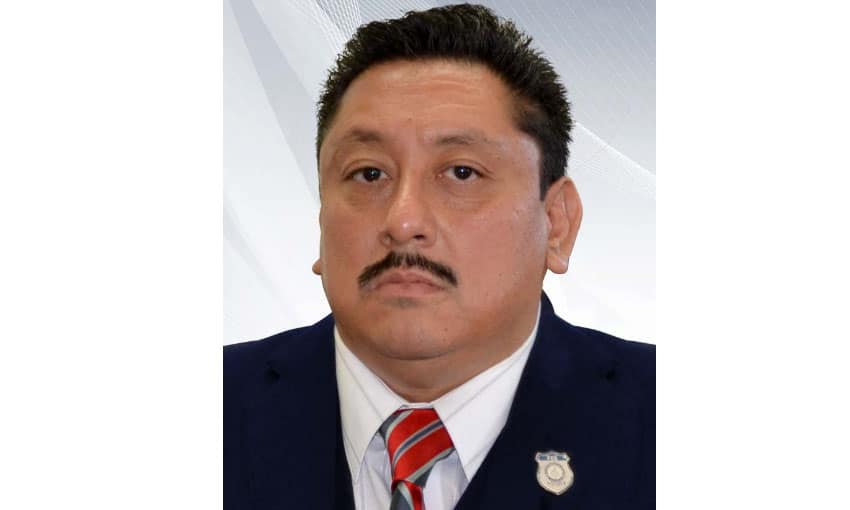Convinced that she was being kidnapped, a young woman threw herself out of a moving taxi in Mexico City.
A México state mother disappeared on her way to her job as an English teacher and wasn’t seen again until her corpse was found six days later.
Another young woman was found dead on the side of a road in Morelos after she disappeared in Mexico City.
Lidia Gabriela Maldonado, Mónica Citlalli Díaz and Ariadna Fernanda López, all of whom died in the past two weeks, are among the latest victims of gender-based violence in Mexico, where an average of 10 women are killed every day and victim blaming — including by authorities — is rife.

Some alleged femicide cases, such as that of 18-year-old Nuevo León woman Debanhi Escobar earlier this year, attract intense media coverage and provoke national outrage, but many others are barely reported on, if at all, and go unperceived by most Mexicans.
Firmly in the former category is the case of Ariadna López, whose body was found on Oct. 30 by cyclists in Tepoztlán, Morelos, the day after she disappeared in the trendy Mexico City neighborhood of Condesa. One factor that has raised López’s case profile is the intervention of Mexico City Mayor Claudia Sheinbaum, a leading candidate to succeed President López Obrador.
Sheinbaum accused Morelos Attorney General Uriel Carmona of protecting the alleged killer after he announced that a forensic examination determined that López choked on her own vomit due to intoxication.
“It is clear that the attorney general of Morelos tried to cover up for the killer of a woman because of his ties to the killer,” she said earlier this week.
Mexico City Attorney General Ernestina Godoy said Sunday that a subsequent autopsy completed by experts in the capital found “several lesions caused by blows” on López’s body and determined that the cause of her death was “multiple traumas.”
A man and a woman, reportedly a couple, have been arrested in connection with her alleged murder, but impunity for femicides — and most other crimes — remains the norm in Mexico. Authorities, including the federal government and the president, have been accused of indifference to the country’s monumental gender-based violence problem even as feminist groups organize increasingly large protests to demand action.
Critics of Mayor Sheinbaum have even claimed that her outspokenness about Ariadna’s case is politically motivated — part of her campaign to position herself for a presidential run.
As anger over the alleged femicides of López and other recent victims continues to simmer, the federal government on Thursday attempted to demonstrate that it is committed to combating violence against women.

López Obrador reaffirmed his disdain for impunity and complicity between officials and criminals, while Deputy Security Minister Ricardo Mejía reported that 27 people were arrested or sentenced on femicide charges in the seven days between Nov. 3 and 9. Among those detained was the couple accused of killing Ariadna López and the man driving the taxi when Lidia Maldonado leapt to her death.
“Let’s remember that the sentence for the crime of femicide ranges from 40 to 70 years in prison,” Mejía said, without mentioning that the vast majority of perpetrators are never held accountable for their crimes.
While Sheinbaum’s motives for her intervention in López’s case have been questioned, a member of the National Citizens Observatory on Femicide praised the Mexico City mayor.
“I believe [her] words are … exceptional because politicians are normally very careful with the narratives [they present],” Ana Yeli Pérez Garrido told the newspaper El País.

She said she was conscious of the mayor’s political aspirations, but still believes she sent an “important message” by speaking out so forcefully against another official — a person with the capacity to fortify the fight against impunity and help make Mexico safer for women.
Sheinbaum’s words laid bare “the deficiencies” of authorities tasked with combating and investigating crime, Pérez said. “That’s favorable in Mexico, [the shortcomings of authorities] is not a minor issue,” she said.
“… Prosecutors offices have given shelter to impunity, … that’s why it’s important that politicians send messages of intolerance of that,” Pérez added.
Patricia Olamendi, a well-known feminist, asserted that “almost all” prosecutors offices are negligent and Mexicans are fed up both with attorney generals such as Carmona “coming out and saying that the [femicide] victim was drunk” and with the lack of policies to prevent violence against women.
The feminism movement in Mexico has helped to raise awareness of the country’s gender-based violence problem and people now want action, she said. “Society is starting to say enough, because this [ongoing violence against women] is a horror movie,” Olamendi said.
In a column published in the El Universal newspaper earlier this week, prominent security analyst Alejandro Hope wrote that violence against women in Mexico is “qualitatively different” to violence against men.
While 69% of men who were murdered in 2021 were shot, the figure for women was 58%, he wrote, noting that 15% of female victims were hung and 12% were killed with sharp objects such as knives. Hope also wrote that 24% of women who were murdered last year were killed in a private home whereas the figure for male victims was just 11%.

“Home is not a safe place for a significant proportion of women and many of them live with their aggressors,” the analyst said.
He cited a study by the National Institute of Statistics and Geography that found that in 40% of cases of murder committed against women between 1990 and 2017 in which the relationship between the alleged aggressor and the victim was known, the alleged perpetrator was the victim’s partner.
Hope added that femicide is “the extreme manifestation” of a range of different forms of violence that women in Mexico face.
“According to the most recent National Survey on the Dynamics of Relationships in Homes (Endireh 2021), 1.5 million women were physically assaulted in the family environment during the 12 months prior to the survey,” he wrote.
Citing another survey, the analyst said that 1.7 million women were victims of sexual crimes last year, most of which weren’t reported. The survey counted 10 sexual crimes against women for every one committed against a man, he wrote.
“To all of the above, we have to add all the other many forms of violence and exclusion that women suffer in Mexico. According to Endireh, 70.1% of women older than 15 have suffered at least one incident of emotional, economic, physical or sexual violence, or discrimination, in their lifetime,” Hope wrote.
“In conclusion, the tragic deaths of Ariadna Fernanda and Lidia Gabriela are not more than the most extreme manifestation of a condition of structural and daily violence women face,” he said. “… Acknowledging that fact and trying to correct it is a necessary step to confront other forms of violence and other injustices.”
According to the National Commission to Prevent and Eradicate Violence Against Women (Conavim), personal, social and cultural factors all contribute to the prevalence of violence in Mexico.

On a federal government website, the commission said that perpetrators of violence against women are “immersed in a society and culture that has historically conditioned them to think that one way to express their masculinity is through violent, dominant, possessive and controlling attitudes and behavior, and that any attempt to change this represents a risk to their manliness.”
“… Both women and men have a role to play … to eradicate gender-based violence, and it is important to understand the origins of violence in order to prevent it … and to learn to identify the warning signs in order to avoid a situation escalating until it becomes a manifestation of extreme violence against women,” Conavim said.
Writing in Americas Quarterly earlier this year, the co-founder of the Mexico Violence Resource Project at the Center for U.S.-Mexican Studies at the University of California San Diego said “there’s no panacea in addressing gender violence, but there is one major prerequisite for protecting women on which Mexico’s government has fallen far short: the social safety net.”
“Evidence from around the world shows how social programs aimed at promoting gender equality also provide women with the financial independence they need to escape situations that put them at risk (an abusive marriage, for example),” Cecilia Farfán-Méndez wrote.
“But while López Obrador came into office on a promise to reinvigorate and strengthen programs for the most vulnerable, his government has done much to tear down the social infrastructure designed with women in mind,” she wrote.
“… To be sure, violence against women did not begin under the López Obrador administration. Nor were programs promoting gender equality enacted in previous administrations without significant fault (there is always room for improvement). But the steps the government has taken so far to protect women have often been at best misguided.”
